Bitter but beloved: Bengal’s healing starters - GetBengal story
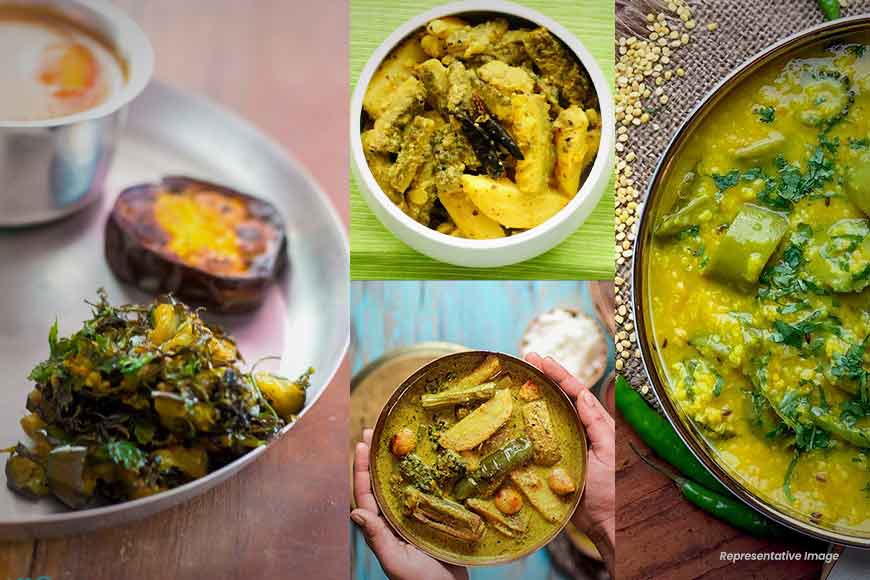
“Prothome teto diye kha”, every Bengali grows up hearing this phrase at the dining table, often from a grandmother who insists that a meal is not complete without a bite of bitterness to start it off.
The Bengali palate has long been guided by a quiet philosophy: food should nourish the body as much as it pleases the soul. Therefore, Bengalis start their meals with bitter dishes such as Neem Begun, Uchche vaja/uchche chochori, or their own Shukto, while the rest of the country strives for the ideal balance of spice, tang, and aroma.
This age-old custom is not culinary whimsy—it is rooted in Ayurvedic wisdom, which teaches that bitterness purifies, cools, and heals. The tradition of starting with the teto (bitter) course is both ritual and remedy, a practice that has survived generations for good reason.
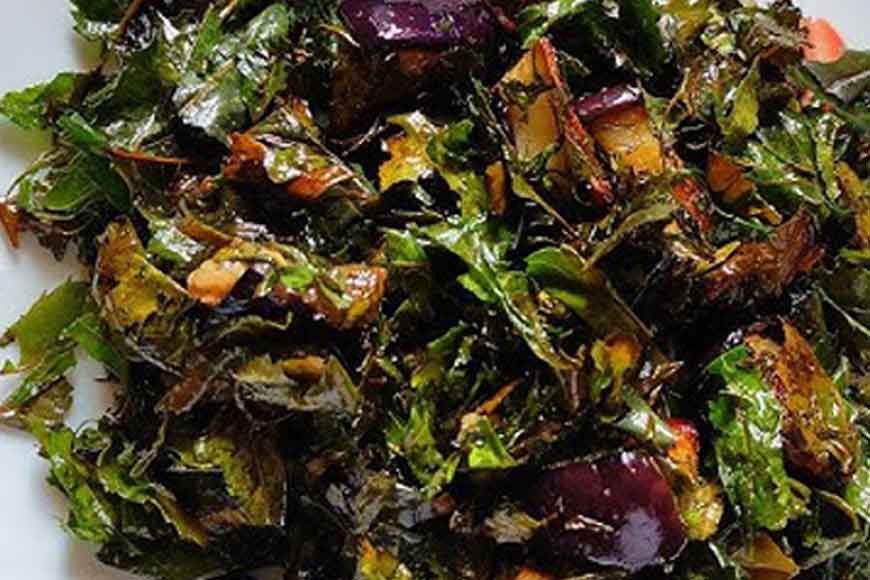
Neem Begun
The classic Neem Begun is both humble and healing. Traditionally served at the start of a meal especially during winter to spring, this dish pairs the intense bitterness of neem leaves with the soft, smoky sweetness of fried brinjal.
Ingredients:
● Sun dried neem leaves
● Medium brinjal (cut into small cubes)
● Mustard oil
● Mustard seeds
● A pinch of turmeric
● Sugar
● Salt to taste
● Dried red chilli (optional)
Method:
1. Heat mustard oil in a pan. Fry the brinjal. Remove and set aside.
2. In the same oil, add mustard seeds and a dried red chilli. Let them splutter.
3. Add the sundried neem leaves and the fried brinjal, turmeric, and salt. Fry till golden and cooked through.
4. Add a pinch of sugar, toss well.
5. Serve hot with steamed rice as the first course.
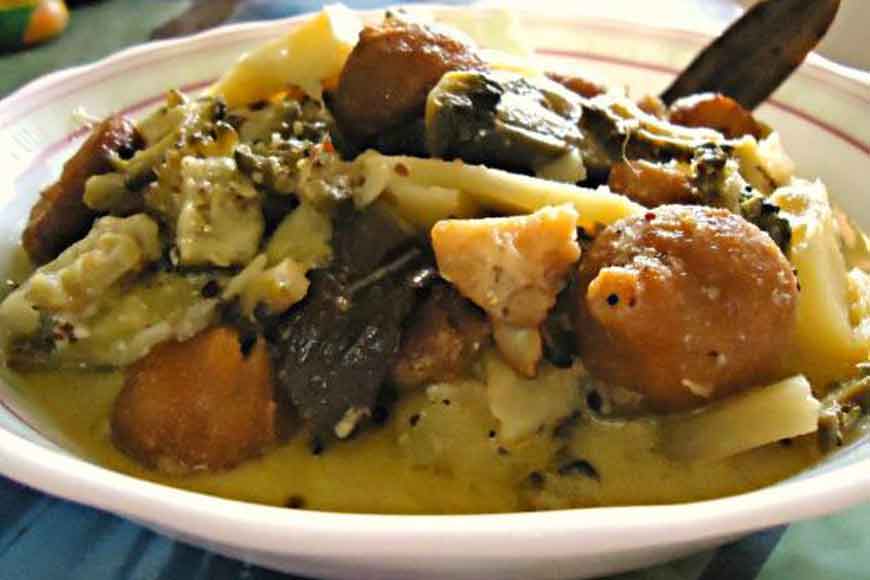
Shukto
If there is one dish that defines the Bengali love for complex subtlety, it is definitely Shukto. A gentle, bittersweet stew made of mixed vegetables, Shukto brings together karela (bitter gourd), drumsticks, raw banana, ridge gourd, sweet potato, and bori (dried lentil dumplings) in a light white gravy. It is the perfect start to a traditional festive meal.
Ingredients:
● Small bitter gourd (uchhe), sliced
● Small raw banana, peeled and sliced
● Sliced potato
● Drumstick (sojne data), cut into 2-inch pieces
● Poppy seed paste (posto bata)
● 1 cup milk
● Bay leaf
● Mustard seeds
● Panch phoron
● Ghee
● Salt and sugar to taste
● A few fried bori
Method:
1. Fry the vegetables lightly in mustard oil, starting with bitter gourd. Set aside.
2. In the same pan, add panch phoron and bay leaf for tempering.
3. Add the poppy seed and mustard seed paste and stir gently.
4. Add all vegetables, salt, and sugar. Pour in water and cook until tender.
5. Add milk and a spoon of ghee at the end.
6. Top with fried boris. Serve warm as the opening dish of a traditional meal.
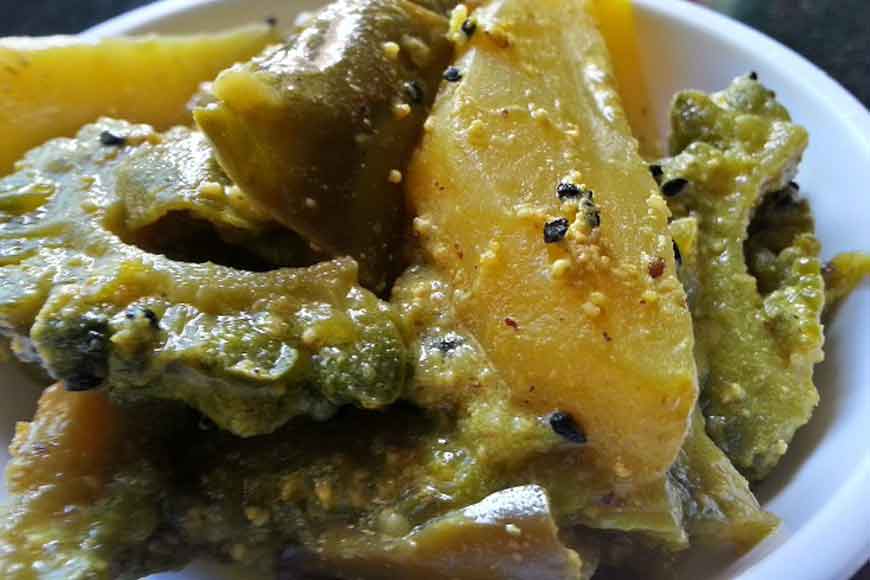
Uchche chorchori
A village favourite, Uchche Chorchori is a dry curry, dominated by bitter gourd.
Ingredients:
● Bitter gourds, sliced
● Potato, sliced thin
● Mustard paste
● Turmeric
● Mustard oil
● Salt to taste
Method:
1. Heat mustard oil in a pan and add bitter gourd fry till golden brown and set aside.
2. Add the potato slices with turmeric and salt. Cook on low flame .
3. Add the mustard paste and a splash of water.
4. Cook till dry and lightly crisp at the edges.
5. Serve with rice and dal as part of the teto course.
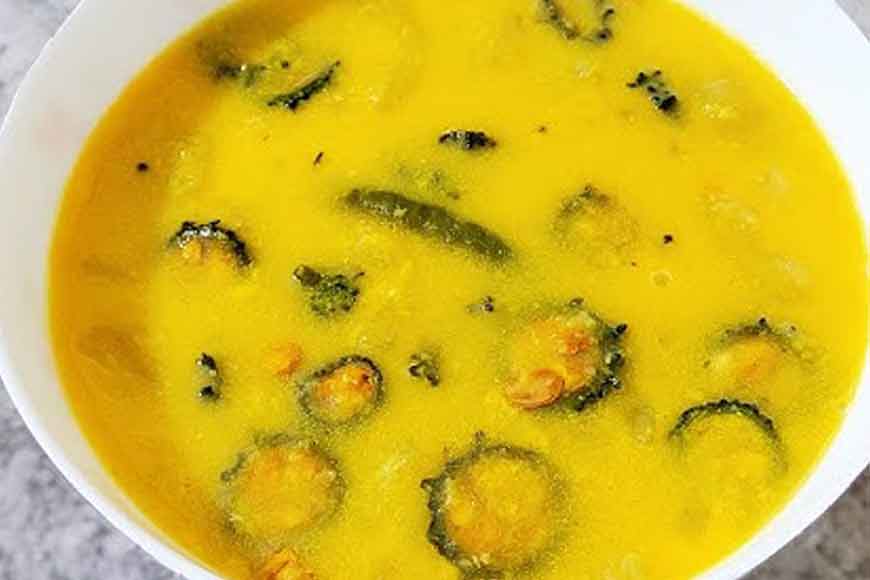
Teto Daal
Simple, light, and wholesome, Teto Dal is the perfect dish for a hot day, as it is cooling, easy to digest, and subtly aromatic with mustard seeds and green chilies.
Ingredients:
● Moong dal (yellow lentils)
● Bitter gourd, sliced thin
● Green chilies, slit
● Mustard seeds
● Turmeric
● Mustard oil
● Salt to taste
Method:
1. Dry roast the moong dal till golden and fragrant. Wash and pressure cook with turmeric and water until soft.
2. In a pan, heat mustard oil and fry the bitter gourd slices till lightly browned.
3. Add mustard seeds and green chilies. When they splutter, pour in the cooked dal.
4. Add salt, simmer for 5–7 minutes, and finish with a drizzle of ghee.
5. Serve with rice for a cooling, cleansing meal.
To outsiders, these dishes may seem austere. But to a Bengali, they are comfort itself. Each bitter bite reminds us that wellness comes from balance. In a world obsessed with sugar and spice, Bengal still honours the teto as a quiet teacher.










